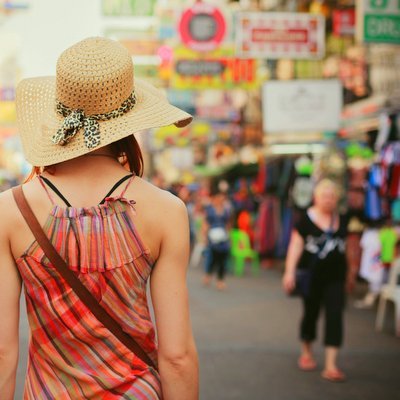.. But You Should Probably Know
Your travel insurance company and your consulate will be your lifeline back to home and comfort when disaster strikes on holidays - think of this relationship as the umbilical cord that ties you to someone who cares - the native with a bone through his nose and penis gourd smiling for the camera won't know how to help you, let alone speak in your tongue. Being wild and adventurous when traveling is exciting, but you should be mindful that just like at home, shit does happen.
Common sense should reign and each disastrous situation has many variables - you may have to trust a total stranger to help you or you may have to be wary of figures in authority - use your brains and always have adequate travel insurance. In the case of dual citizenship you must be traveling on the passport of the consulate that you contact.
Below are 5 examples of what to do when in a prickly situation:
1. Arrested
Whilst overseas the law of whatever country you are in applies to you, some of which may appear to be very harsh according to your own country's laws, like the death penalty or corporal punishment such as whippings. There are no get out of jail free cards available. Your government cannot interfere with a foreign legal system, they can only lend you support. If arrested, ask to speak to a consular officer from your country of citizenship. Or simply, don't do anything that will get you arrested in the first place.

2. Quarantined
If by some chance you find yourself in the unfortunate situation of being quarantined in a foreign country, the consulate of your country would be advised by hospital staff, who in turn would advise your family. They in turn should get in touch with your travel insurer.
3. Victim of Crime
Either contact the local police or get to a hospital and let the hospital staff alert the police. Once you have done this, the consulate of your country of domicile is next on the list to help you with the practical issues, such as replacing your passport. They can also help you deal with police if you can't speak the local lingo or if you feel intimidated to do so. Then contact your bank if credit cards have been stolen and ring your travel insurance. Ensure that you have a copy of the police report of the incident for when you want to claim on your insurance policy.
If your are sexually assaulted, go straight to hospital first and contact your consulate from there. They will do your bidding in relation to reporting the incident to local police. The consular officer will also notify your travel insurance company, as well as your family.

4. Hospitalized
Your travel insurance company is the first to contact if you are able to and most offer 24-hour assistance anywhere in the world. Short of tattooing your name, country of residence and full health record on some large part of your body, wearing a bracelet with an emergency contact number on it would be helpful to hospital staff if you are unable to communicate with them and it may keep you safe from receiving drugs that you have an allergy to.
5. If You or a Travel Companion Die
If it is you, you won't have to worry about anything. Hopefully you will have enough identification on your body to alert authorities as to who you are and what country you belong to. They will contact your local consulate, who will then get in touch with your family. Consulates will help to repatriate a body whilst liaising with your family and travel insurance company. Hopefully your personal affairs were in order before you left home - make sure you have adequate insurance cover and a current will before you leave, stating whether you want to come back in a box or as ashes in an urn.
If your traveling companion dies of boredom on the trip or for some other valid reason, contact your consulate and travel insurance company straight away. Both will help you negotiate the minefield of expatriating a body.
Always
Have your embassy or consulate's plus your travel insurance's telephone numbers in your mobile phone, before leaving home. | |
Have a printed list noting an emergency family contact, passport number plus travel insurance details kept in your wallet or even down your undies at all times. | |
Leave a footprint via email or social media of your expected itinerary and stay in touch every few days if possible. | |
Ensure that your travel insurance details are in the hands of someone at home who cares about you. |
Gail Palethorpe, a self proclaimed Australian gypsy, is a freelance writer, photographer and eternal traveller. Check out her website Gail Palethorpe Photography and her Shutterstock profile.















